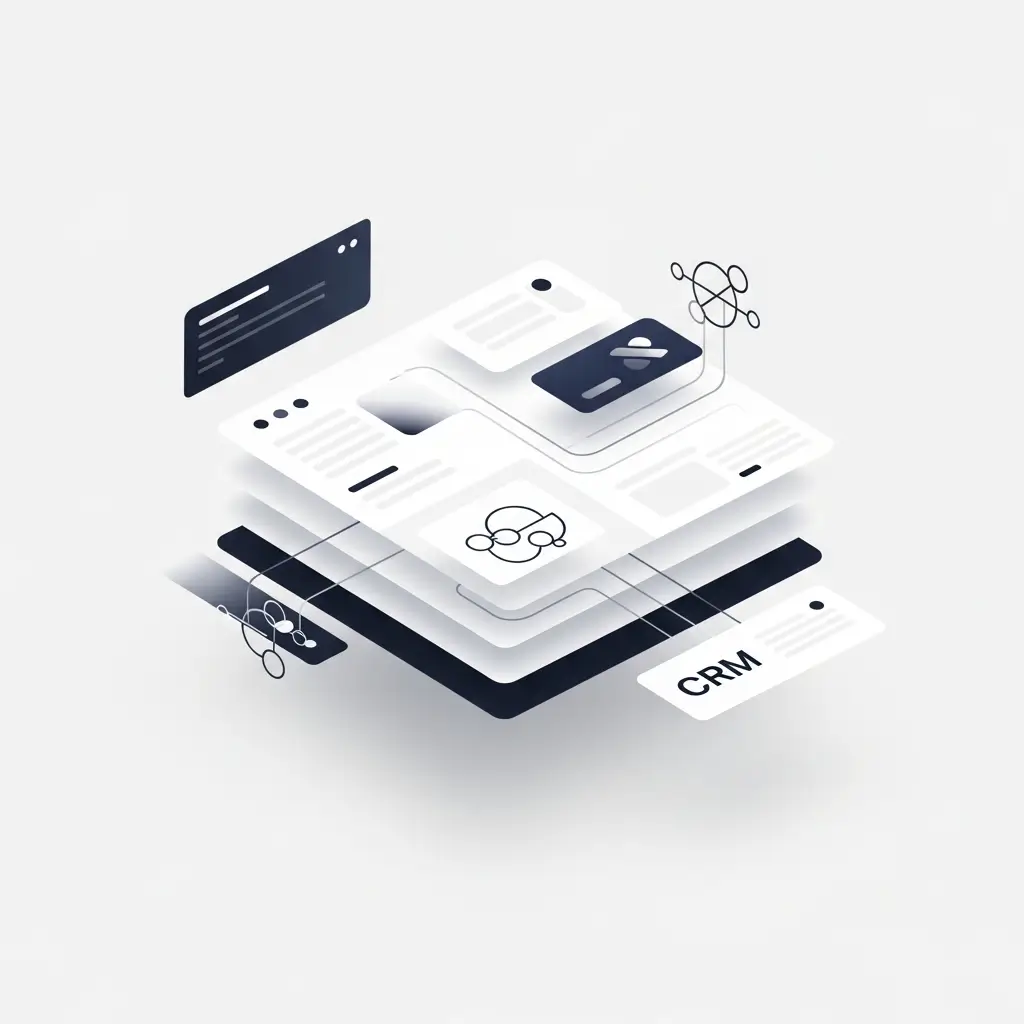Introduction
As we advance towards 2025, enterprises are increasingly seeking robust and scalable integration architectures that can accommodate the dynamic nature of CRM, ERP, HRIS, POS, and accounting systems. The adoption of event-driven microservices and scalable API ecosystems is pivotal in this transformation, offering the agility and modularity necessary for future-ready enterprise integration. Integrating such systems isn’t merely a technical challenge but a strategic move to ensure businesses stay agile and responsive to market demands. Traditional models have given way to AI-enhanced digital solutions and data-driven decision-making, redefining what is possible in enterprise integration.

Event-Driven Microservices: The Backbone of Modern Integration
With the rise of digital demands, event-driven microservices have become the go-to architectural solution for enabling seamless, real-time data flow and system resilience. These granular units of business functionality react to changes and communicate with each other via events, forming a dynamic and responsive network. This decoupling of services fosters a more scalable and flexible approach to system integration, as each microservice can be developed, deployed, and scaled independently. Xcube Labs underscores the significance of event-driven microservices in facilitating adaptive and personalized customer experiences while minimizing downtime and service disruption.
Key Benefits of Event-Driven Architecture
- Real-time data processing and decision-making enable organizations to act swiftly on insights.
- Enhanced system resilience and fault isolation help maintain business continuity.
- Scalability to handle varying loads and demands ensures that the system grows with the business.
Scalable API Ecosystems: Enabling Interoperability
The integration landscape is increasingly API-driven, promoting connectivity and interoperability among disparate systems. A well-designed, scalable API ecosystem allows businesses to integrate various platforms swiftly and accommodate emerging technologies. By providing a set of programmable interfaces, APIs enable enterprises to build upon their existing infrastructure. They offer a balance between security, ease of use, and flexibility, key attributes for a successful digital strategy. According to Apideck, a robust API solution ensures a unified platform that can continually evolve without causing disruption to the core business process.
Strategies for API Ecosystem Scalability
- Crafting APIs with forward-compatibility, preparing for future system enhancements.
- Utilizing API gateways for managing security concerns and regulating traffic flow.
- Adopting service meshes to improve service-to-service communications and visibility.
AI Integration in Enterprise Systems
Artificial intelligence has made its mark on every aspect of modern software, offering previously unattainable capabilities to enterprise systems. AI-driven analytics and automation are now foundational elements that enhance efficiency and drive informed decision-making. AI-native development is gaining traction, leading to more sophisticated and tightly integrated AI solutions in enterprise software. Forrester’s research anticipates this trend, positing that AI will become a core component of the enterprise software stack, thus setting a new bar for what is considered a competitive edge.
Impact of AI on Enterprise Integration
- Predictive analytics affords businesses the ability to anticipate and plan for future contingencies.
- Automated workflows reduce the need for human intervention, freeing up valuable resources.
- Richer data insights empower businesses to craft strategies grounded in solid evidence.
Real-World Applications and Business Impact
Industries from retail to finance are harnessing the power of event-driven microservices and scalable APIs to drive innovation and business growth. Coupling CRM and POS systems enhances inventory transparency and customer service, while AI-powered analytics enable financial institutions to detect fraudulent transactions with higher accuracy. In manufacturing, integrating ERP systems with supply chain processes results in more efficient production planning and inventory control. These integrations are critical for businesses to maintain their competitive edge in an increasingly digital world.
Case Studies of Integration Success
- Retailers are achieving a unified view of customer interactions and inventory levels by integrating CRM with event-driven POS systems.
- Manufacturers are fostering transparent supply chain management by seamlessly connecting ERP systems with advanced tracking solutions like blockchain.
- Financial service providers are bolstering security and compliance efforts through AI-driven surveillance of CRM data and transactional systems.
The path to robust enterprise integration in the digital age is multi-faceted, incorporating event-driven microservices, scalable APIs, and AI-enhanced workflows. It involves reimagining integration as a core business strategy, rather than a mere technical requirement. The innovative use of these technologies not only accelerates digital transformation but also lays the foundation for a resilient, future-proof enterprise. Companies must embrace this integrated, intelligent approach to remain competitive in an increasingly digital marketplace.
Strategic Takeaways: To maintain competitive advantage, enterprises need to focus on modularity, real-time data processing, and AI-driven integration, each an essential element in the digital business arsenal. The implementation of event-driven microservices and scalable APIs far transcends a technical update; it represents a business imperative for sustainable growth and transformative capabilities.
For more insights into why and how your business should redefine its digital strategy for the AI era, visit Folkastudio.
Citations:


